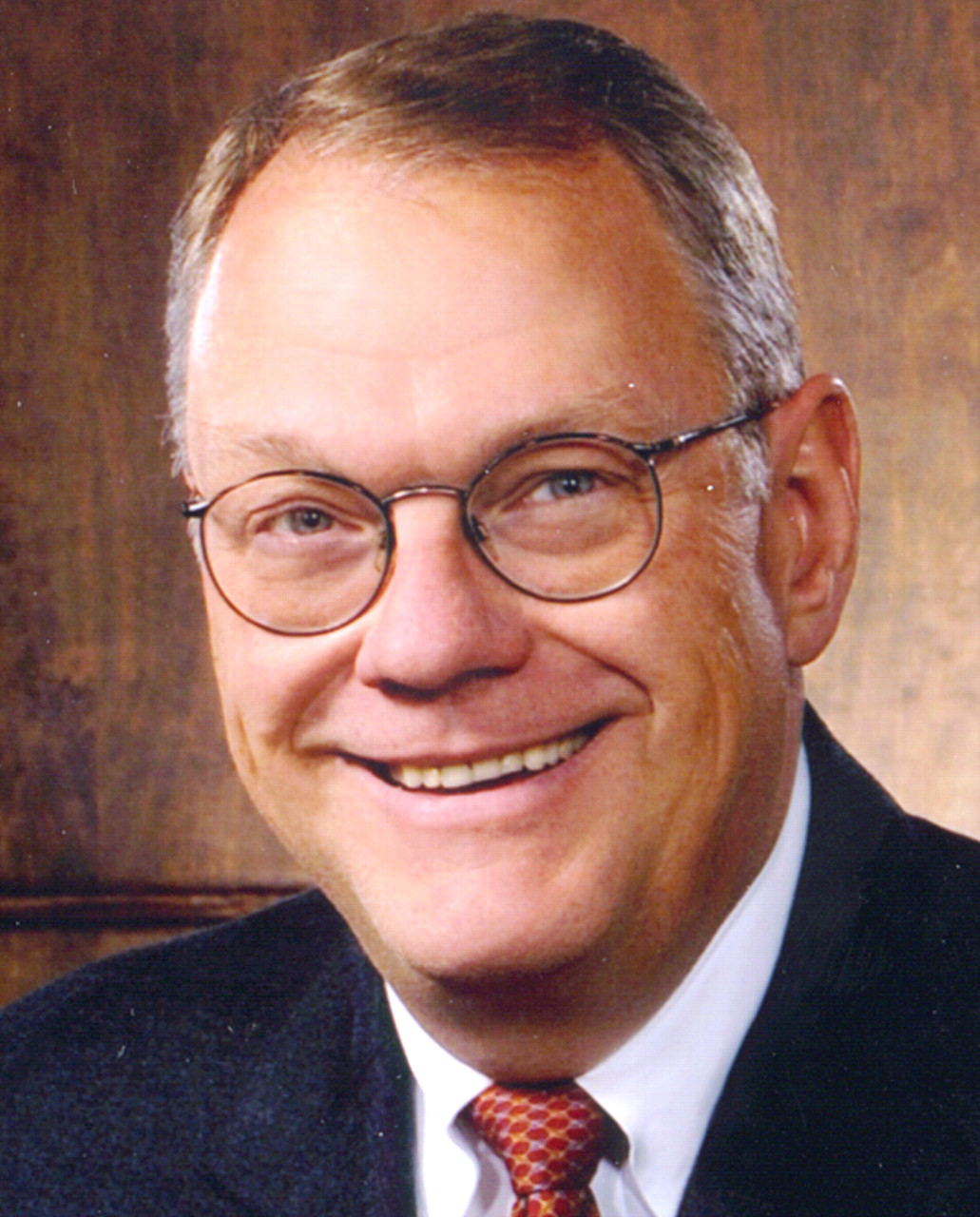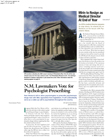After a year of turmoil resulting in the firing of its former chief executive officer (
Psychiatric News, July 5, 2001), the country’s largest physicians’ group in December named Michael D. Maves, M.D., as the association’s new leader.
In January, on his first day on the job as the AMA’s executive vice president, Maves pledged to work vigorously toward “tearing down the bureaucratic and economic obstacles to providing patient care and strengthening the AMA as the voice of medicine and a force for needed change in how health care is delivered in America.”
Lofty goals, indeed. Maves, an ear-nose-throat surgeon who until December still saw patients one day a week at Georgetown University in Washington D.C., is no stranger to association governance. He served as executive vice president of his own specialty society, the American Academy of Otolaryngology–Head and Neck Surgery, from 1994 to 1999. He then headed the Consumer Healthcare Products Association in Washington, D.C.
Recently, after he’d had a few weeks to get acquainted with his newest position, Maves talked with Psychiatric News about his goals for “taking the AMA forward” and how collaboration could be improved between the AMA and specialty societies such as APA.
“Number one has to be delivering value to physicians,” said Maves. “We are constantly concerned about our membership numbers,” since people are always asking, “What have you done for members lately, how are you providing service to them, and how are you matching what they want to what you have? Are you meeting the needs of the practitioners across the entire life span of their practices?”
“In some respects, AMA has done some tremendous things for the patients, for physicians, for the public, and for society,” Maves said. “Yet I don’t think we’ve always effectively communicated those accomplishments as well as we could have, not only to the membership, but to the public as well.”
As such, Maves explained, his second goal is improving communication. AMA may represent “considerable value to the membership and to the physician community at large, but if no one knows what you are doing or recognizes it, then you’re sort of working in a vacuum.”
Better communication, Maves stressed, means staying close to and interacting with the constituents of the “house of medicine”—the state and specialty medical societies. That, he said, would be central to accomplishing his third and fourth goals in moving AMA forward.
“Number three, I think, is sort of adopting an action orientation,” he emphasized. “We sometimes talk things to death instead of getting out there and swinging, taking plans, and putting them into action.” Maves said there are “file cabinets upon file cabinets gathering dust back at State Street [AMA’s headquarters in Chicago] that are just full of good stuff.”
Maves said that at the strategic planning retreat he was attending when he spoke to Psychiatric News, he told the board of trustees that the organization needed a “hot list” of seven to 10 items that they wanted to work on. “And, if you want to do it, let’s do it in two months, not two years,” he emphasized.
“That’s the deal—we are very good at making policy, but where we fall down, I think—a justifiable criticism of the AMA—is in getting those policies enacted.” Some things may be out of organized medicine’s control, such as sensitive federal legislative items, but “a couple of changes in some of the private health plans could deliver a lot of relief to a lot of folks and make the prospects better,” Maves suggested.
Improving the AMA’s record on taking action requires better collaboration and interaction with the state and specialty societies. “If we don’t work together on all of the issues that are critical for all of us, then the physicians out there should be critical of all of us in organized medicine.” Maves is starting the process with an aggressive schedule of meetings with association leaders, including APA Medical Director Steven Mirin, M.D.
Last on Maves’ list of the “top four,” the one he identified as the most important in moving AMA forward, is accepting responsibility.
“You have to understand there is a considerable trust out there for the American Medical Association,” he said. He alluded to that trust not always being upheld, including recent examples of “business opportunities that because of our ethical basis, we can’t pursue or shouldn’t pursue.”
Maves believes that he and the AMA board agree on this point and the pitfalls that caused problems between the board and his predecessor won’t recur. The AMA is “at a crossroads here,” he said. “You can look at examples in American business, like Lee Iacocca at Chrysler, of times being tough and a leader or group of leaders—and in our case I do think this is a group exercise—coming together and saying there’s a pressing need that’s bigger than any of us.” ▪

